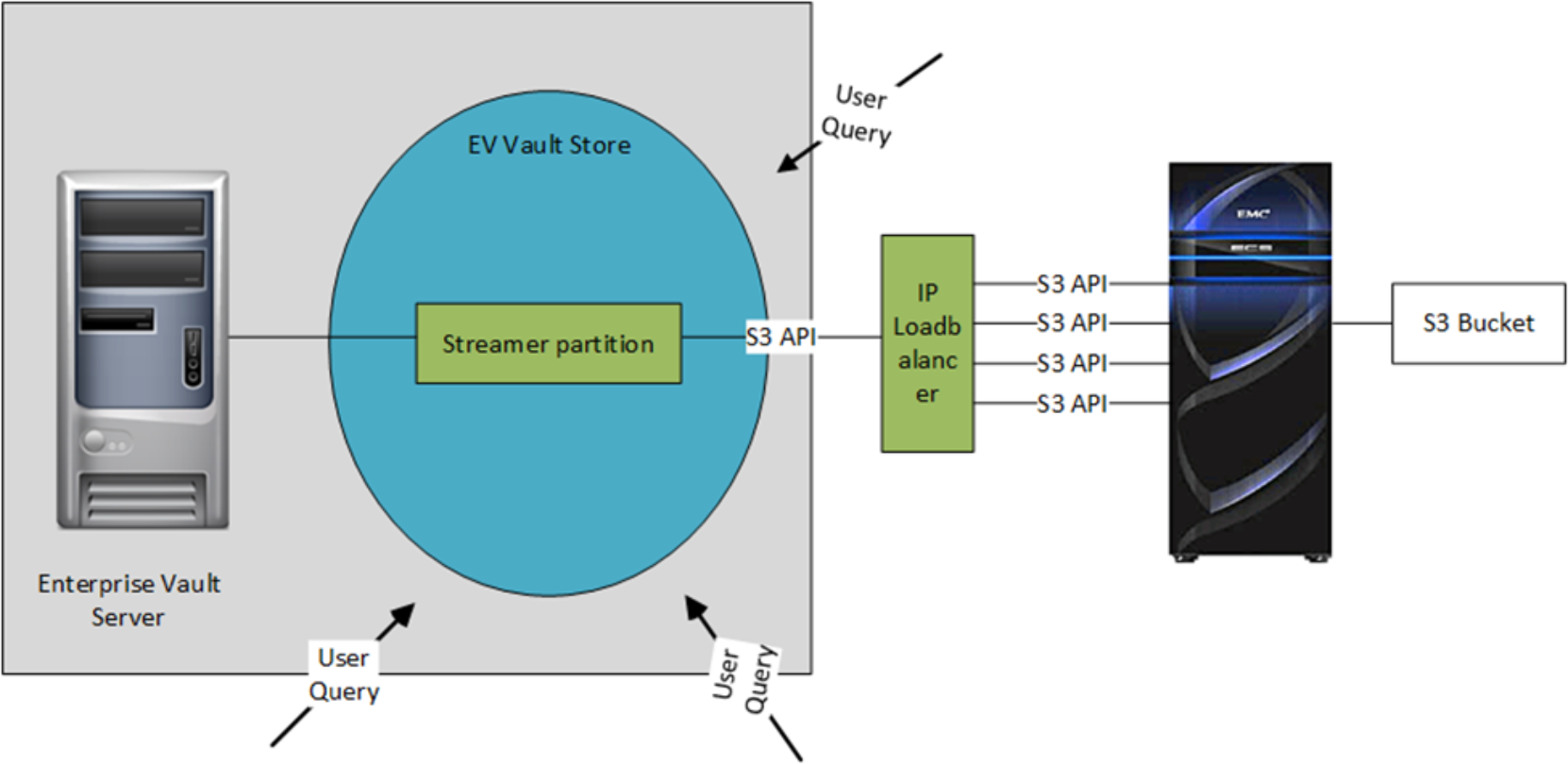Home > Storage > ObjectScale and ECS > Industry Solutions and Verticals > Dell ECS: Using Veritas Enterprise Vault > ECS Streamer overview
ECS Streamer overview
-
Veritas has developed an Enterprise Vault storage streamer API with which archive storage vendors must integrate their products to allow Enterprise Vault to archive files, email, and other items to their storage systems. Dell has developed the ECS Storage Streamer driver to allow Veritas Enterprise Vault to archive to ECS. The ECS Streamer driver translates the Enterprise Vault storage streamer API calls to the ECS S3 API.
Customers can now create vault store partitions of type Dell ECS within the Enterprise Vault Administration Console (VAC). These vault store partitions are associated with S3 buckets on the ECS cluster where savesets that are archived to the vault store will reside.
ECS buckets reside within ECS namespaces that might be compliant or noncompliant. Both compliant and noncompliant namespaces allow retention to be propagated from Enterprise Vault to the ECS cluster; however, compliant namespaces store archive data in tamper-resistant storage, which meets strict SEC 17a-4(f) rules for electronic record-keeping.
 Figure 1. Example of an ECS based storage solution for Veritas Enterprise Vault
Figure 1. Example of an ECS based storage solution for Veritas Enterprise VaultThe Enterprise Vault system has archive policies that archive files to a vault store in which an ECS based partition has been defined. The ECS Streamer driver uses the ECS S3 API to store and access objects in the S3 bucket on the ECS cluster.
ECS systems are clusters of four or more individual ECS nodes. Customers can use the ECS Streamer integrated load balancer (from version 2.0) to distribute I/O across all nodes in the ECS cluster or can deploy an IP load balancer to distribute I/O.
